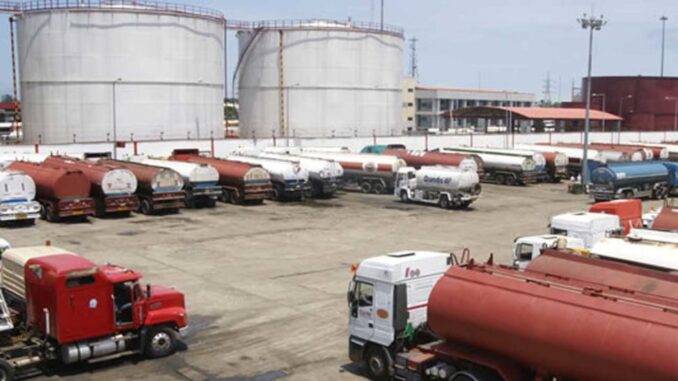
We can use a netback calculation method to determine the expected revenue obtained by the DSDP partner if the petroleum products were sold in Netherlands. The gross product revenue of a refined barrel of crude oil is the sum of the volume yield (fraction) of each refined product multiplied by its price. Therefore the expected gross revenue of the DSDP partner would have been (129.58*0.0889 + 307.80*0.4333 + 256.45*0.2222 + 85.50*0.0889 + 323.86*0.1667) or $263.43. The expected take of the DSDP partner would be ($263.43 – $76.41) or $187.05. The expected profits of the DSDP partner would have depended on the difference between its expected take ($187.05) and the cost of loading the crude oil, taxes, shipping the crude oil to the foreign refinery, refining the crude oil, loading petroleum products of equal value to the crude, taxes, shipping the petroleum products to NNPCL at the designated Nigerian port, offloading the petroleum products, and more taxes etc. The NNPCL take would be $76.41 or equivalent in value ($76.41) to the I bbl of crude oil received from NNPCL.
The DSDP partner delivered petroleum products (PMS, Diesel, and Jet Fuel) of Nigerian standard specification to NNPCL on Delivered at Place (DAP) basis, at designated safe port (s) in Nigeria. NNPCL sold the petroleum products to distributors/marketers at domestic landing cost prices. An additional expense of about $6.34/bbl was incurred as distribution margins by the distributors/marketers. NNPC can claim fuel subsidy when there is a loss or under-recovery. NNPC defined under-recovery as the difference between the total cost (landing cost + distribution margins) and the government regulated PMS price at the pump. This difference is multiplied by the volume of PMS imported to determine the fuel subsidy claims. No fuel subsidy is claimed if the total cost (landing cost + distribution margins) is equal or less than the PPPRA regulated PMS price at the pump. NEITI published the monthly volumes of domestic allocated crude oil exported and PMS received under the DSDP program in 2019 and 2020. The National Bureau Statistics published the average monthly PMS prices per litre during 2019 and 2020. The sum of the products of the monthly volumes and prices will gives us the annual revenue generated from the sales of the imported DSDP PMS in the Nigerian market. Therefore, we can examine the DSDP program in 2019 and 2020 to determine if there was any subsidy.
In 2019, 107.24 million bbls of domestic allocated crude were exported. Almost all the crude volume (104.48 million bbls or 97.4%) was lifted by suppliers (consortia companies) or DSDP partners. Table 1 shows DSDP data for 2019. The total PMS import volume received by NNPC was 107.24 million bbls with a value of $7.012 billion. This was approximately the value of the crude given to DSDP partners for refining since 97.4% of the volume was under the DSDP program. The 107.24 million bbls of PMS was sold in the Nigerian market for $7.083 billion. This gives a profit of $71.944 million for the DSDP program in 2019. There was no subsidy. Yet, NNPC collected $1.602 billion as fuel subsidy for 2019.
In 2020, all the crude volume (184.74 million bbls or 100%) was lifted by suppliers (consortia companies) or DSDP partners. The cost of the crude oil was $6.169 billion. The total PMS import volume received by NNPC was 13.793 MT with a value of $6.035 billion. The 13.793 MT of PMS was sold in the Nigerian market for $6.660. This gives a profit of $490.572 million for the DSDP program in 2020. There was no subsidy.
Yet, NNPC collected $370.4695 million as subsidy for 2020.
Table 1: 2020-Direct Sale Direct Purchase
We have shown that there was no subsidy under the DSDP program in 2019 and 2020. The same was true of the DSDP program from 2016 to 2023.
The fuel subsidy claimed under the DSDP programme from 2016 to 2023 were all false. The recent policy to increase PMS prices in order to remove the corruption called “fuel subsidy” is wrong and misdirected. It will harm the poor and remove no corruption. The fuel subsidy regime was an official criminal enterprise.
The 2012 Farouk Lawan committee subsidy investigations identified many companies and individuals who delivered no petroleum products and made false claims of $6.8 billion. Very few of them faced any consequences. There are often no consequences in Nigeria when the rich and powerful loot the public treasury with impunity. Nevertheless, there is a need for the government to do a detailed audit of the 2016-2023 DSDP program and the false subsidy claims made under it. Our recommendations to the Nigerian grassroots and youth is simple. We are citizens of a neoliberal IMF induced crime scene. It is our duty to hold our leaders and government accountable. It is our duty to fight for our interests. Freedom comes by struggle.
Concluded
Agbon wrote via izielenagbon@yahoo.com
Twitter:@izielenagbon


Be the first to comment